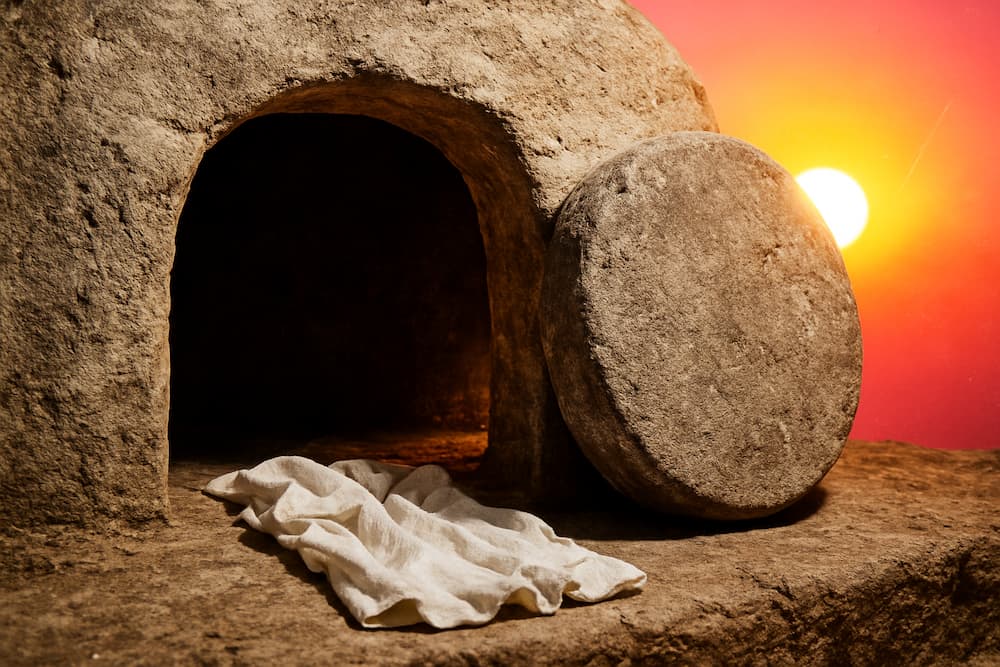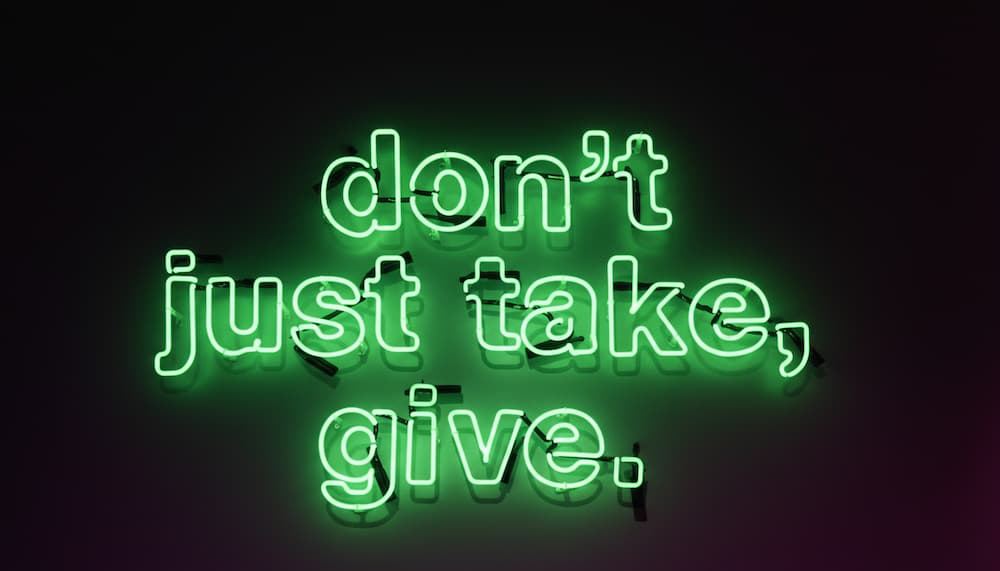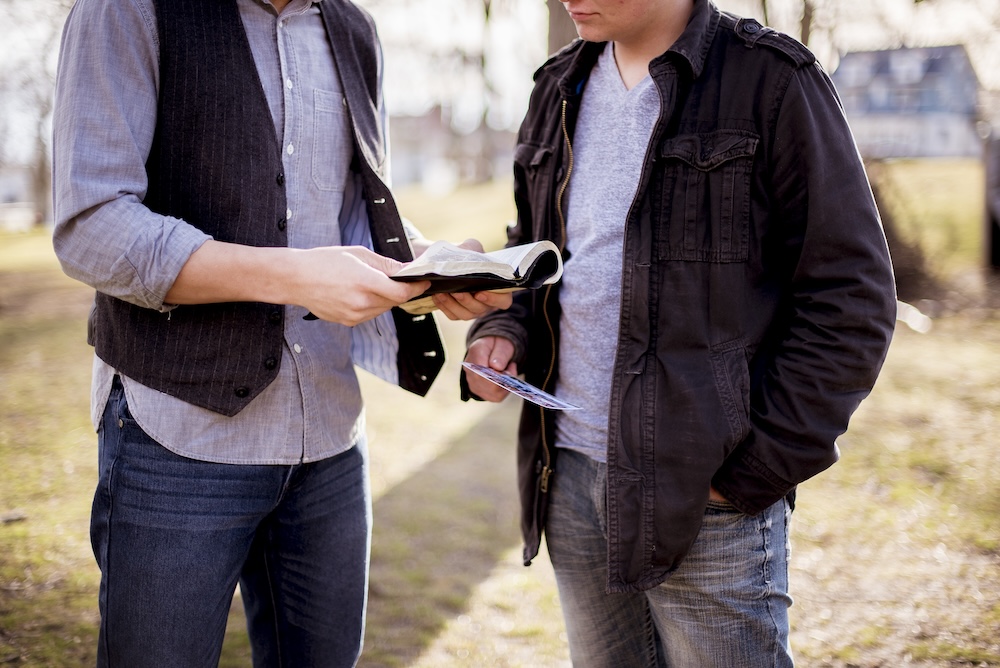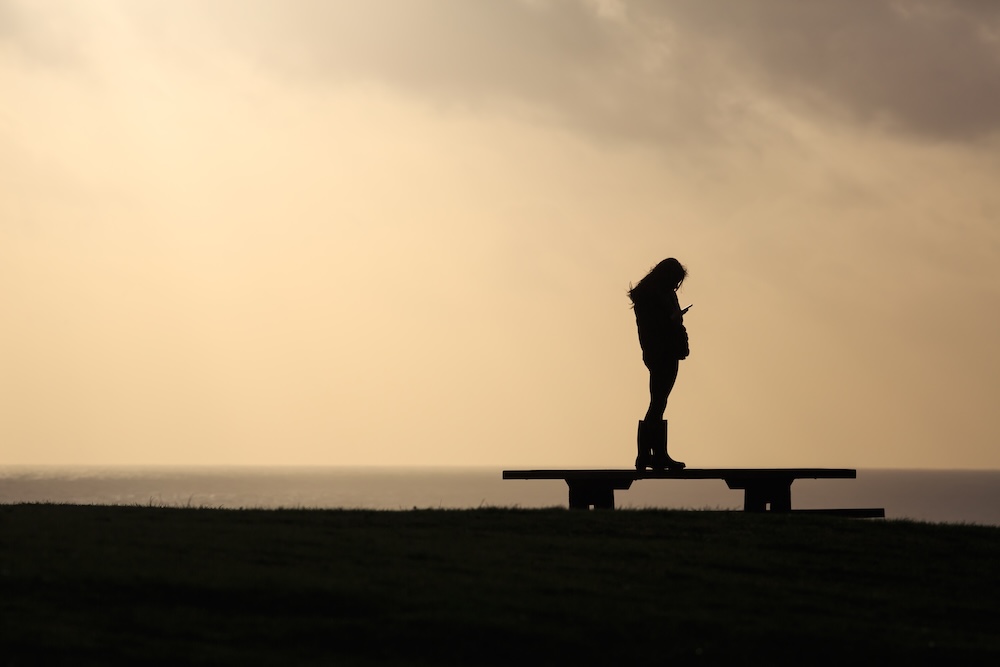Burnout in the Bible
If you’re experiencing burnout as a pastor, you’re not alone. Even heroes of the Bible experienced burnout–in this post, we'll take a look at what we can learn from Elijah's story.

If you’re experiencing burnout as a pastor, you’re not alone.
Even heroes of the Bible experienced burnout–defined as “physical, emotional or mental exhaustion, accompanied by decreased motivation, lowered performance and negative attitudes towards oneself and others.”
Moses got discouraged–even to the point of asking God to kill him (Numbers 11:14-15). After experiencing defeat, David and his men wept aloud “until they had no more strength left to weep” (1 Samuel 30:4). The Apostle Paul was shipwrecked, beaten, starved, and sleep-deprived–and “besides everything else…face[d] daily the pressure of…concern for all the churches (2 Corinthians 11).
In one way or another, they were all burned out. But there’s no one person in the Bible who showed burnout more than the prophet Elijah.
Burned Out On His Purpose
In a previous post, I talked about how the prophet Elijah became exhausted after being pursued by Jezebel. He was depressed, dissatisfied with his work and had lost a sense of purpose. He hadn’t done anything wrong; he was just depleted by a very difficult assignment.
Here’s the full passage.
Ahab told Jezebel all that Elijah had done, and how he had killed all the prophets with the sword. Then Jezebel sent a messenger to Elijah, saying, “So may the gods do to me and more also, if I do not make your life as the life of one of them by this time tomorrow.” Then he was afraid, and he arose and ran for his life and came to Beersheba, which belongs to Judah, and left his servant there.
But he himself went a day's journey into the wilderness and came and sat down under a broom tree. And he asked that he might die, saying, “It is enough; now, O Lord, take away my life, for I am no better than my fathers.” And he lay down and slept under a broom tree. And behold, an angel touched him and said to him, “Arise and eat.” And he looked, and behold, there was at his head a cake baked on hot stones and a jar of water. And he ate and drank and lay down again. And the angel of the Lord came again a second time and touched him and said, “Arise and eat, for the journey is too great for you.” And he arose and ate and drank, and went in the strength of that food forty days and forty nights to Horeb, the mount of God.
Later in the chapter, Elijah called to God; “I have zealously served the Lord God Almighty. But the people of Israel have broken their covenant with you, torn down your altars, and killed every one of your prophets. I am the only one left, and now they are trying to kill me, too.” (1 Kings 19:10).
Elijah felt like he was the only one left doing God’s work and he couldn’t sustain himself.
God’s response wasn’t to force him to do more work; it was to replenish him.
Sometimes, we just need to step away, to hide out in our cave, so to speak. If you feel like you have to hide, talk to God. The Lord can come with a still, small voice, give you a new sense of purpose, and reinvigorate your assignment. Let God speak to you, spend time with God, and rest.
Loneliness is a Part of Burnout
Loneliness is one overlooked aspect of burnout. Elijah was certainly experiencing loneliness when he hit the point of burnout. After being chased into the wilderness by enemies, he spent a night alone in a cave. Dejected and isolated, he called out to God.
Elijah, however, wasn’t just lonely because he was alone. He was lonely because he felt isolated in his calling.
Here’s one way to think about loneliness. Consider two scenarios–one, a Saturday afternoon after a normal but decent and productive week of work. You take a walk, work in your garden, read an interesting book and have a good meal. Two, a Saturday afternoon after a long, hard week filled with conflict and you’re heading into another. You do the same things: a walk, gardening, reading, and a good dinner.
You are alone for most of the day in both scenarios, but in the second scenario you are far more likely to feel lonely, because you’re struggling.
At our core, we want others to recognize our struggle and to support us, but the irony is that we often have the most trouble asking for help when we are the most in need of it.
Instead of asking, we often self-isolate, tricking ourselves into believing that because the people around us haven’t noticed our struggle, they must not care. It then becomes our problem… ours alone, and we grow more isolated and resentful of those around us. We feel stuck and can slide into self-pity.
When Elijah called out to God, “The children of Israel have forsaken Your covenant, torn down Your altars, and killed Your prophets with the sword. I alone am left, and they seek to take my life,” he was, understandably, in despair and self-pity.
At this moment, God reassured him in a small, still voice that he was still there for Elijah.
Again, God is always ready and willing to speak to your struggle. But one of the first steps to receiving from the Lord is to recognize that you might be in a place of loneliness and burnout.
Next Steps: Ask Yourself These Questions
Here are six questions to help you identify burnout, get unstuck, and find a healthy way forward.
- Have you lost a sense of purpose and assignment? Where do you feel stuck in life?
- What are your goals in life? Being healthy? Feeling happy? Being faithful?
- What are the potential goals that God has for you? How can you find out?
- Where do you feel the most alone in your life right now?
- Where is it not sustainable (including financially and physically)?
- What would help you consult and get support from others?
If you’re looking for an additional resource on burnout, my book Burnout and Beyond details my own journey through burnout, and provides some insight and guidance for moving forward. It’s just become available for free on Kindle.
I pray that you are encouraged today–burnout is all too common in ministry, but there is hope and healing for those who are feeling burdened.
Come to me, all you who are weary and burdened, and I will give you rest. Take my yoke upon you and learn from me, for I am gentle and humble in heart, and you will find rest for your souls. For my yoke is easy and my burden is light. (Matthew 11:28-30)
Sign Up for Product Updates
If you’re experiencing burnout as a pastor, you’re not alone.
Even heroes of the Bible experienced burnout–defined as “physical, emotional or mental exhaustion, accompanied by decreased motivation, lowered performance and negative attitudes towards oneself and others.”
Moses got discouraged–even to the point of asking God to kill him (Numbers 11:14-15). After experiencing defeat, David and his men wept aloud “until they had no more strength left to weep” (1 Samuel 30:4). The Apostle Paul was shipwrecked, beaten, starved, and sleep-deprived–and “besides everything else…face[d] daily the pressure of…concern for all the churches (2 Corinthians 11).
In one way or another, they were all burned out. But there’s no one person in the Bible who showed burnout more than the prophet Elijah.
Burned Out On His Purpose
In a previous post, I talked about how the prophet Elijah became exhausted after being pursued by Jezebel. He was depressed, dissatisfied with his work and had lost a sense of purpose. He hadn’t done anything wrong; he was just depleted by a very difficult assignment.
Here’s the full passage.
Ahab told Jezebel all that Elijah had done, and how he had killed all the prophets with the sword. Then Jezebel sent a messenger to Elijah, saying, “So may the gods do to me and more also, if I do not make your life as the life of one of them by this time tomorrow.” Then he was afraid, and he arose and ran for his life and came to Beersheba, which belongs to Judah, and left his servant there.
But he himself went a day's journey into the wilderness and came and sat down under a broom tree. And he asked that he might die, saying, “It is enough; now, O Lord, take away my life, for I am no better than my fathers.” And he lay down and slept under a broom tree. And behold, an angel touched him and said to him, “Arise and eat.” And he looked, and behold, there was at his head a cake baked on hot stones and a jar of water. And he ate and drank and lay down again. And the angel of the Lord came again a second time and touched him and said, “Arise and eat, for the journey is too great for you.” And he arose and ate and drank, and went in the strength of that food forty days and forty nights to Horeb, the mount of God.
Later in the chapter, Elijah called to God; “I have zealously served the Lord God Almighty. But the people of Israel have broken their covenant with you, torn down your altars, and killed every one of your prophets. I am the only one left, and now they are trying to kill me, too.” (1 Kings 19:10).
Elijah felt like he was the only one left doing God’s work and he couldn’t sustain himself.
God’s response wasn’t to force him to do more work; it was to replenish him.
Sometimes, we just need to step away, to hide out in our cave, so to speak. If you feel like you have to hide, talk to God. The Lord can come with a still, small voice, give you a new sense of purpose, and reinvigorate your assignment. Let God speak to you, spend time with God, and rest.
Loneliness is a Part of Burnout
Loneliness is one overlooked aspect of burnout. Elijah was certainly experiencing loneliness when he hit the point of burnout. After being chased into the wilderness by enemies, he spent a night alone in a cave. Dejected and isolated, he called out to God.
Elijah, however, wasn’t just lonely because he was alone. He was lonely because he felt isolated in his calling.
Here’s one way to think about loneliness. Consider two scenarios–one, a Saturday afternoon after a normal but decent and productive week of work. You take a walk, work in your garden, read an interesting book and have a good meal. Two, a Saturday afternoon after a long, hard week filled with conflict and you’re heading into another. You do the same things: a walk, gardening, reading, and a good dinner.
You are alone for most of the day in both scenarios, but in the second scenario you are far more likely to feel lonely, because you’re struggling.
At our core, we want others to recognize our struggle and to support us, but the irony is that we often have the most trouble asking for help when we are the most in need of it.
Instead of asking, we often self-isolate, tricking ourselves into believing that because the people around us haven’t noticed our struggle, they must not care. It then becomes our problem… ours alone, and we grow more isolated and resentful of those around us. We feel stuck and can slide into self-pity.
When Elijah called out to God, “The children of Israel have forsaken Your covenant, torn down Your altars, and killed Your prophets with the sword. I alone am left, and they seek to take my life,” he was, understandably, in despair and self-pity.
At this moment, God reassured him in a small, still voice that he was still there for Elijah.
Again, God is always ready and willing to speak to your struggle. But one of the first steps to receiving from the Lord is to recognize that you might be in a place of loneliness and burnout.
Next Steps: Ask Yourself These Questions
Here are six questions to help you identify burnout, get unstuck, and find a healthy way forward.
- Have you lost a sense of purpose and assignment? Where do you feel stuck in life?
- What are your goals in life? Being healthy? Feeling happy? Being faithful?
- What are the potential goals that God has for you? How can you find out?
- Where do you feel the most alone in your life right now?
- Where is it not sustainable (including financially and physically)?
- What would help you consult and get support from others?
If you’re looking for an additional resource on burnout, my book Burnout and Beyond details my own journey through burnout, and provides some insight and guidance for moving forward. It’s just become available for free on Kindle.
I pray that you are encouraged today–burnout is all too common in ministry, but there is hope and healing for those who are feeling burdened.
Come to me, all you who are weary and burdened, and I will give you rest. Take my yoke upon you and learn from me, for I am gentle and humble in heart, and you will find rest for your souls. For my yoke is easy and my burden is light. (Matthew 11:28-30)
podcast transcript
If you’re experiencing burnout as a pastor, you’re not alone.
Even heroes of the Bible experienced burnout–defined as “physical, emotional or mental exhaustion, accompanied by decreased motivation, lowered performance and negative attitudes towards oneself and others.”
Moses got discouraged–even to the point of asking God to kill him (Numbers 11:14-15). After experiencing defeat, David and his men wept aloud “until they had no more strength left to weep” (1 Samuel 30:4). The Apostle Paul was shipwrecked, beaten, starved, and sleep-deprived–and “besides everything else…face[d] daily the pressure of…concern for all the churches (2 Corinthians 11).
In one way or another, they were all burned out. But there’s no one person in the Bible who showed burnout more than the prophet Elijah.
Burned Out On His Purpose
In a previous post, I talked about how the prophet Elijah became exhausted after being pursued by Jezebel. He was depressed, dissatisfied with his work and had lost a sense of purpose. He hadn’t done anything wrong; he was just depleted by a very difficult assignment.
Here’s the full passage.
Ahab told Jezebel all that Elijah had done, and how he had killed all the prophets with the sword. Then Jezebel sent a messenger to Elijah, saying, “So may the gods do to me and more also, if I do not make your life as the life of one of them by this time tomorrow.” Then he was afraid, and he arose and ran for his life and came to Beersheba, which belongs to Judah, and left his servant there.
But he himself went a day's journey into the wilderness and came and sat down under a broom tree. And he asked that he might die, saying, “It is enough; now, O Lord, take away my life, for I am no better than my fathers.” And he lay down and slept under a broom tree. And behold, an angel touched him and said to him, “Arise and eat.” And he looked, and behold, there was at his head a cake baked on hot stones and a jar of water. And he ate and drank and lay down again. And the angel of the Lord came again a second time and touched him and said, “Arise and eat, for the journey is too great for you.” And he arose and ate and drank, and went in the strength of that food forty days and forty nights to Horeb, the mount of God.
Later in the chapter, Elijah called to God; “I have zealously served the Lord God Almighty. But the people of Israel have broken their covenant with you, torn down your altars, and killed every one of your prophets. I am the only one left, and now they are trying to kill me, too.” (1 Kings 19:10).
Elijah felt like he was the only one left doing God’s work and he couldn’t sustain himself.
God’s response wasn’t to force him to do more work; it was to replenish him.
Sometimes, we just need to step away, to hide out in our cave, so to speak. If you feel like you have to hide, talk to God. The Lord can come with a still, small voice, give you a new sense of purpose, and reinvigorate your assignment. Let God speak to you, spend time with God, and rest.
Loneliness is a Part of Burnout
Loneliness is one overlooked aspect of burnout. Elijah was certainly experiencing loneliness when he hit the point of burnout. After being chased into the wilderness by enemies, he spent a night alone in a cave. Dejected and isolated, he called out to God.
Elijah, however, wasn’t just lonely because he was alone. He was lonely because he felt isolated in his calling.
Here’s one way to think about loneliness. Consider two scenarios–one, a Saturday afternoon after a normal but decent and productive week of work. You take a walk, work in your garden, read an interesting book and have a good meal. Two, a Saturday afternoon after a long, hard week filled with conflict and you’re heading into another. You do the same things: a walk, gardening, reading, and a good dinner.
You are alone for most of the day in both scenarios, but in the second scenario you are far more likely to feel lonely, because you’re struggling.
At our core, we want others to recognize our struggle and to support us, but the irony is that we often have the most trouble asking for help when we are the most in need of it.
Instead of asking, we often self-isolate, tricking ourselves into believing that because the people around us haven’t noticed our struggle, they must not care. It then becomes our problem… ours alone, and we grow more isolated and resentful of those around us. We feel stuck and can slide into self-pity.
When Elijah called out to God, “The children of Israel have forsaken Your covenant, torn down Your altars, and killed Your prophets with the sword. I alone am left, and they seek to take my life,” he was, understandably, in despair and self-pity.
At this moment, God reassured him in a small, still voice that he was still there for Elijah.
Again, God is always ready and willing to speak to your struggle. But one of the first steps to receiving from the Lord is to recognize that you might be in a place of loneliness and burnout.
Next Steps: Ask Yourself These Questions
Here are six questions to help you identify burnout, get unstuck, and find a healthy way forward.
- Have you lost a sense of purpose and assignment? Where do you feel stuck in life?
- What are your goals in life? Being healthy? Feeling happy? Being faithful?
- What are the potential goals that God has for you? How can you find out?
- Where do you feel the most alone in your life right now?
- Where is it not sustainable (including financially and physically)?
- What would help you consult and get support from others?
If you’re looking for an additional resource on burnout, my book Burnout and Beyond details my own journey through burnout, and provides some insight and guidance for moving forward. It’s just become available for free on Kindle.
I pray that you are encouraged today–burnout is all too common in ministry, but there is hope and healing for those who are feeling burdened.
Come to me, all you who are weary and burdened, and I will give you rest. Take my yoke upon you and learn from me, for I am gentle and humble in heart, and you will find rest for your souls. For my yoke is easy and my burden is light. (Matthew 11:28-30)
VIDEO transcript
If you’re experiencing burnout as a pastor, you’re not alone.
Even heroes of the Bible experienced burnout–defined as “physical, emotional or mental exhaustion, accompanied by decreased motivation, lowered performance and negative attitudes towards oneself and others.”
Moses got discouraged–even to the point of asking God to kill him (Numbers 11:14-15). After experiencing defeat, David and his men wept aloud “until they had no more strength left to weep” (1 Samuel 30:4). The Apostle Paul was shipwrecked, beaten, starved, and sleep-deprived–and “besides everything else…face[d] daily the pressure of…concern for all the churches (2 Corinthians 11).
In one way or another, they were all burned out. But there’s no one person in the Bible who showed burnout more than the prophet Elijah.
Burned Out On His Purpose
In a previous post, I talked about how the prophet Elijah became exhausted after being pursued by Jezebel. He was depressed, dissatisfied with his work and had lost a sense of purpose. He hadn’t done anything wrong; he was just depleted by a very difficult assignment.
Here’s the full passage.
Ahab told Jezebel all that Elijah had done, and how he had killed all the prophets with the sword. Then Jezebel sent a messenger to Elijah, saying, “So may the gods do to me and more also, if I do not make your life as the life of one of them by this time tomorrow.” Then he was afraid, and he arose and ran for his life and came to Beersheba, which belongs to Judah, and left his servant there.
But he himself went a day's journey into the wilderness and came and sat down under a broom tree. And he asked that he might die, saying, “It is enough; now, O Lord, take away my life, for I am no better than my fathers.” And he lay down and slept under a broom tree. And behold, an angel touched him and said to him, “Arise and eat.” And he looked, and behold, there was at his head a cake baked on hot stones and a jar of water. And he ate and drank and lay down again. And the angel of the Lord came again a second time and touched him and said, “Arise and eat, for the journey is too great for you.” And he arose and ate and drank, and went in the strength of that food forty days and forty nights to Horeb, the mount of God.
Later in the chapter, Elijah called to God; “I have zealously served the Lord God Almighty. But the people of Israel have broken their covenant with you, torn down your altars, and killed every one of your prophets. I am the only one left, and now they are trying to kill me, too.” (1 Kings 19:10).
Elijah felt like he was the only one left doing God’s work and he couldn’t sustain himself.
God’s response wasn’t to force him to do more work; it was to replenish him.
Sometimes, we just need to step away, to hide out in our cave, so to speak. If you feel like you have to hide, talk to God. The Lord can come with a still, small voice, give you a new sense of purpose, and reinvigorate your assignment. Let God speak to you, spend time with God, and rest.
Loneliness is a Part of Burnout
Loneliness is one overlooked aspect of burnout. Elijah was certainly experiencing loneliness when he hit the point of burnout. After being chased into the wilderness by enemies, he spent a night alone in a cave. Dejected and isolated, he called out to God.
Elijah, however, wasn’t just lonely because he was alone. He was lonely because he felt isolated in his calling.
Here’s one way to think about loneliness. Consider two scenarios–one, a Saturday afternoon after a normal but decent and productive week of work. You take a walk, work in your garden, read an interesting book and have a good meal. Two, a Saturday afternoon after a long, hard week filled with conflict and you’re heading into another. You do the same things: a walk, gardening, reading, and a good dinner.
You are alone for most of the day in both scenarios, but in the second scenario you are far more likely to feel lonely, because you’re struggling.
At our core, we want others to recognize our struggle and to support us, but the irony is that we often have the most trouble asking for help when we are the most in need of it.
Instead of asking, we often self-isolate, tricking ourselves into believing that because the people around us haven’t noticed our struggle, they must not care. It then becomes our problem… ours alone, and we grow more isolated and resentful of those around us. We feel stuck and can slide into self-pity.
When Elijah called out to God, “The children of Israel have forsaken Your covenant, torn down Your altars, and killed Your prophets with the sword. I alone am left, and they seek to take my life,” he was, understandably, in despair and self-pity.
At this moment, God reassured him in a small, still voice that he was still there for Elijah.
Again, God is always ready and willing to speak to your struggle. But one of the first steps to receiving from the Lord is to recognize that you might be in a place of loneliness and burnout.
Next Steps: Ask Yourself These Questions
Here are six questions to help you identify burnout, get unstuck, and find a healthy way forward.
- Have you lost a sense of purpose and assignment? Where do you feel stuck in life?
- What are your goals in life? Being healthy? Feeling happy? Being faithful?
- What are the potential goals that God has for you? How can you find out?
- Where do you feel the most alone in your life right now?
- Where is it not sustainable (including financially and physically)?
- What would help you consult and get support from others?
If you’re looking for an additional resource on burnout, my book Burnout and Beyond details my own journey through burnout, and provides some insight and guidance for moving forward. It’s just become available for free on Kindle.
I pray that you are encouraged today–burnout is all too common in ministry, but there is hope and healing for those who are feeling burdened.
Come to me, all you who are weary and burdened, and I will give you rest. Take my yoke upon you and learn from me, for I am gentle and humble in heart, and you will find rest for your souls. For my yoke is easy and my burden is light. (Matthew 11:28-30)




























